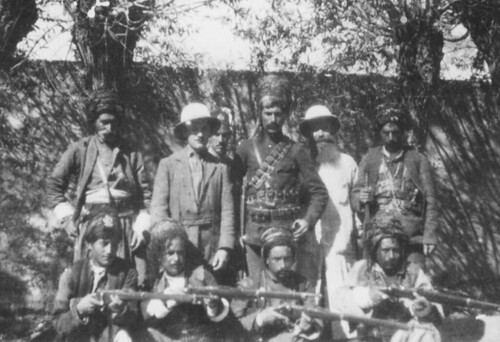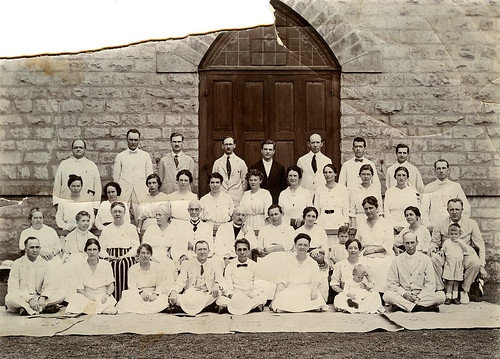 The Pentagon seems to have decided that anthropology is to the war on terror what physics was to the Cold War. As an anthropologist, this makes me very nervous.
The Pentagon seems to have decided that anthropology is to the war on terror what physics was to the Cold War. As an anthropologist, this makes me very nervous.Where former Defense Secretary Donald Rumsfeld believed that the United States would vanquish its enemies through technological superiority, his replacement Robert Gates has said that cultural expertise in counterinsurgency operations will be crucial in the future wars he anticipates.
For those anthropologists who don't judge the vitality of our discipline solely in terms of revenue streams, the Pentagon's new interest in culture is worrying. So far the Pentagon has announced two major initiatives to mobilize anthropological knowledge for war. The first is the Human Terrain Team system, to which Gates allocated $40 million in September 2007. The Pentagon plans 26 Human Terrain Teams--one for each combat brigade in Iraq and Afghanistan. The five-person teams include three military personnel. Each team also includes an anthropologist--or another social scientist--who will wear a military uniform and receive weapons training. Described as doing "armed social work" by David Kilcullen, an Australian expert in counterinsurgency who advises Gen. David Petraeus in Iraq, the teams elicit information from villagers for Pentagon databases and provide cultural orientation to U.S. military leaders.
According to a scathing article in Newsweek, thus far, few of the embedded social scientists recruited speak local languages or know much about local culture. For example, the best-known embedded anthropologist, Marcus Griffin of Christopher Newport University in Virginia, is mainly knowledgeable about Filipino hunter-gatherers and Freegan dumpster-divers in the United States. One wonders how useful his military colleagues find his "cultural expertise."
Last year, the Executive Board of the American Anthropological Association (AAA) issued a statement condemning the use of anthropologists in Human Terrain Teams. Why would the AAA object to anthropologists doing their bit for the war on terror? After all, perhaps anthropologists could help smooth out some of the cultural misunderstandings between U.S. troops and locals that have exacerbated violence in Iraq and Afghanistan? Is this political correctness run amok?
 One cannot grasp AAA's concerns without understanding that anthropologists have a unique research method that brings with it special ethical responsibilities: We engage in what one anthropologist has called "deep hanging out" with people, passing the time with them, often day after day for months, painstakingly earning their trust and getting them to tell us about their worlds. What distinguishes anthropology from espionage (apart from anthropologists' impenetrable jargon) is that we seek the consent of our subjects, and we follow an injunction to do no harm to those we study. According to the anthropological code of ethics, our obligations to those we study trump all others--to colleagues, funders, and nation. (It's for this reason that Franz Boas, the father of American anthropology, famously condemned four colleagues for using anthropological research as cover for spying during World War I.)
One cannot grasp AAA's concerns without understanding that anthropologists have a unique research method that brings with it special ethical responsibilities: We engage in what one anthropologist has called "deep hanging out" with people, passing the time with them, often day after day for months, painstakingly earning their trust and getting them to tell us about their worlds. What distinguishes anthropology from espionage (apart from anthropologists' impenetrable jargon) is that we seek the consent of our subjects, and we follow an injunction to do no harm to those we study. According to the anthropological code of ethics, our obligations to those we study trump all others--to colleagues, funders, and nation. (It's for this reason that Franz Boas, the father of American anthropology, famously condemned four colleagues for using anthropological research as cover for spying during World War I.)Embedded anthropologists are on shaky ethical terrain because they cannot realistically get free consent from their interlocutors while dressed in camouflage and traveling with U.S. soldiers in Humvees. Similarly, they cannot control the use of the information they collect for the military, and thus, cannot ensure it isn't used to harm communities they study. For instance, during the Vietnam War, under Project Phoenix, anthropological knowledge was used to target villagers for assassination. The U.S. military's quest to weaponize culture


0 comments:
Post a Comment